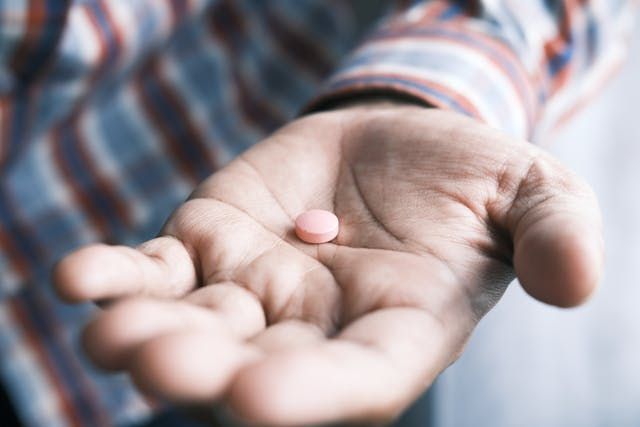Blood Sugar and Itchy Skin Rashes

Introduction of the Relationship Between Blood Sugar and Skin Health
Today, we're diving into an important but often overlooked topic: the connection between blood sugar levels and skin health. Many people don't realize that imbalanced blood sugar can significantly impact your skin, leading to various issues from rashes to persistent itching and infections. This relationship is especially crucial for women, particularly those in peri and postmenopausal stages, as they may experience more pronounced effects.
Importance of Understanding the Blood Sugar Skin Connection for Overall Wellness
Understanding how blood sugar affects your skin is important to achieve overall wellness. Uncontrolled blood sugar doesn't just affect your internal health; it affects your skin as well. High blood sugar can cause dry, itchy skin, while low blood sugar can lead to skin discomfort and other issues. Moreover, conditions like diabetes can exacerbate these problems, making skin care a vital aspect of managing your health.
Recognizing and addressing the impact of blood sugar on your skin, allows you to be proactive in improving your overall well-being. Managing blood sugar levels effectively can lead to healthier, more radiant skin, and reduce the risk of chronic skin conditions. Today, we'll explore how you can achieve this balance and reap the benefits it brings to your life."
Explanation of Blood Sugar Regulation
To understand how blood sugar affects your skin, it's essential first to grasp how blood sugar is regulated in your body. Blood sugar, or glucose, is the main source of energy for your cells. When you eat, carbohydrates in your food are broken down into glucose, which then enters your bloodstream.
To simplify this concept as much as possible, carbohydrates are anything that is not protein or fiber. Each food has a varying degree of protein, fiber, and sugar, from zero to 100%. Animal protein sources like chicken, steak, and turkey are 100% protein, they contain no fiber or sugar. Fruit and vegetables contain some fiber but mostly sugar which can affect your blood sugar levels. Usually sugars from whole fruits and vegetables will be absorbed more slowly than pasta, bread, cookies, and other highly processed or liquified sugary foods.
The amount of glucose in your blood is what we refer to as 'blood sugar levels.' Your body strives to keep these levels within a narrow range to ensure that you have enough energy for your daily activities without causing damage to your organs and tissues. This regulation is managed by your consciousness of what you are eating and the hormone insulin, produced by the pancreas. Insulin helps cells absorb glucose from the bloodstream to be used for energy or stored for later use. Without proper insulin function, blood sugar levels can become too high or too low, leading to various health issues."
The Role of Insulin in Skin Health
Insulin doesn't just help regulate blood sugar; it also plays a crucial role in maintaining healthy skin. When insulin levels are balanced, your skin receives a steady supply of glucose, which it needs to repair and regenerate cells. This process is vital for keeping your skin healthy, hydrated, and resilient.
However, when insulin isn't working correctly—whether due to insulin resistance, diabetes, or other metabolic issues—your skin can suffer. High blood sugar levels can lead to skin dehydration, making it dry and more prone to irritation and infections. Other conditions can have direct “itchy skin” affects due to prolonged high blood sugar levels.
On the flip side, low blood sugar levels can cause skin discomfort and exacerbate existing skin conditions. Therefore, maintaining balanced blood sugar levels through proper diet, lifestyle choices, and medical management is essential for healthy skin.
Understanding and managing your blood sugar and insulin levels can help you prevent many skin-related issues and support your overall health. Next, we'll delve into specific blood sugar imbalances and how you can identify these symptoms early.
Diabetic Itchy Skin
The Impact of High Blood Sugar on Skin Health
High blood sugar, often a result of poorly managed diabetes or insulin resistance, can have a significant impact on your skin. When blood sugar levels are elevated, your body tries to expel the excess glucose through urine, which can lead to dehydration. This dehydration affects your skin, causing it to become dry, cracked, and more prone to irritation and diabetic itch.
One of the most noticeable effects of high blood sugar on the skin is the development of rashes. These rashes, often itchy and uncomfortable, can appear as red or brown patches, particularly on areas of the body that experience friction, such as the armpits, groin, and neck. Diabetic dermopathy, characterized by light brown, scaly patches, is a common skin condition among individuals with high blood sugar levels.
In addition to rashes, high blood sugar can also lead to more serious skin infections. Elevated glucose levels provide an ideal environment for bacteria and fungi to thrive. This can result in frequent bacterial infections like boils and folliculitis, or fungal infections such as athlete's foot, jock itch, and yeast infections. These infections can cause discomfort but also be challenging to treat if blood sugar levels remain uncontrolled.
Signs and Symptoms Blood Sugar Maybe Affecting Your Skin
Common Skin Issues Related to High Blood Sugar
Imbalances in blood sugar can lead to a variety of skin issues. Some of the most common skin problems include:
1. Dry and Itchy Skin:
High blood sugar levels can cause the skin to lose moisture, leading to dryness and persistent itching. This dryness makes the skin more susceptible to cracking and infections.
2. Diabetic Dermopathy:
This condition presents as light brown, scaly patches on the skin, often on the shins. While generally harmless, it can be a sign of poorly controlled diabetes.
3. Acanthosis Nigricans:
This condition causes dark, velvety skin patches to form in body folds and creases, such as the neck, armpits, and groin. It is often associated with insulin resistance and high blood sugar levels.
4. Bacterial Infections:
People with high blood sugar are more prone to bacterial infections, such as boils, styes, and infected hair follicles (folliculitis). These infections can become severe and require medical treatment.
5. Fungal Infections:
Fungi like Candida thrive on glucose, making those with high blood sugar more susceptible to fungal infections. Common fungal infections include athlete's foot, jock itch, and vaginal yeast infections. These infections are often recurrent and can be difficult to manage without proper blood sugar control.
6. Slow Wound Healing:
High blood sugar impairs the body's ability to heal wounds effectively. Even minor cuts and abrasions can take longer to heal, increasing the risk of infection.
Skin issues are often seen as stand-alone conditions but recognizing these skin issues and understanding their connection to blood sugar levels is crucial. This is why a whole-body approach is invaluable, it allows for the connection between a symptom, such as itchy skin, and an underlying cause, such as high blood sugar to be identified.
Dietary Tips for Maintaining Stable Blood Sugar Levels That Support Skin Health
Maintaining stable blood sugar levels is essential for healthy skin. Here are some dietary tips to help you achieve and sustain balanced blood sugar:
Dietary Tips for Itchy Skin:
- Focus on balanced meals that include lean protein, healthy oils, and high fiber. These nutrients slow down the absorption of glucose and prevent blood sugar spikes.
- Fiber-Rich Foods:
As just stated, fiber-rich foods, such as broccoli, cauliflower, asparagus, Brussel Sprouts and collard greens are high in fiber without adding too many sugars to your daily nutrient intake. Fiber helps regulate blood sugar levels by slowing the digestion and absorption of carbohydrates.
- Healthy Snacking:
Choose healthy snacks that provide a steady release of energy, such as a protein smoothie, or high-fiber snack. Avoid sugary snacks and refined carbs that can cause blood sugar fluctuations.
- Portion Control:
Be mindful of portion sizes, especially when it comes to carbohydrates. This is very important! When someone’s blood sugar is already high eating frequently of fruit and snacks can lead to blood sugar spikes, so try to eat three meals a day high in protein and fiber. Snacks should be mostly a protein smoothie.
- Stay Hydrated:
Drink plenty of water throughout the day. Staying hydrated helps your body manage blood sugar levels more effectively. Drinking water isn’t enough, a SMART scale helps measure your water reserves.
- Limit Sugary Beverages:
Avoid sugary drinks like soda, sweetened tea, and fruit juices. These can cause rapid spikes in blood sugar and cause quick weight gain. Instead, choose water, herbal teas, or beverages sweetened with natural, low-calorie sweeteners.
- Consistent Eating Schedule:
Maintain a consistent eating schedule to avoid long gaps between meals. Skipping meals or irregular eating can lead to blood sugar imbalances.
By incorporating these dietary tips into your daily routine, you can help maintain stable blood sugar levels, and supports healthier skin.
How Functional Nutrition Can Support Both Blood Sugar and “Itchy” Skin Health
Functional nutrition takes a holistic approach, focusing on the root causes of health issues rather than just treating symptoms. Here's how it can support both blood sugar regulation and skin health:
1. Balanced Diet:
A functional nutrition plan emphasizes a balanced diet rich in whole, nutrient-dense foods. This helps stabilize blood sugar levels and provides the essential nutrients needed for healthy skin. Foods rich in antioxidants, healthy fats, and fiber are particularly beneficial.
2. Anti-Inflammatory Foods:
Eating anti-inflammatory foods such as leafy greens, berries, fatty fish, and nuts can reduce systemic inflammation, which can be linked to insulin resistance and skin conditions.
3. Gut Health Support:
Functional nutrition prioritizes gut health by including probiotic and prebiotic-rich foods. A healthy gut microbiome supports better blood sugar control and reduces skin inflammation and irritation.
4. Hydration:
Staying well-hydrated is essential for both blood sugar regulation and skin health. Proper hydration helps maintain skin elasticity, reduces dryness, and aids glucose metabolism.
5. Hormone Testing and Stress Management:
Hormone balance and techniques like mindfulness, meditation, and yoga are integral parts of functional nutrition. Managing stress helps balance cortisol levels, which in turn supports stable blood sugar levels and healthy skin.
6. Regular Blood Sugar Monitoring:
Functional nutrition involves ongoing assessment and adjustment based on how your body responds to dietary and lifestyle changes. This continuous monitoring ensures that your plan remains effective and is adapted to your evolving needs.
7. Collagen, Skincare from Within:
Functional nutrition supports skincare from the inside out. By addressing collagen levels, and the underlying nutritional and hormonal imbalances, you can achieve clearer, healthier skin that reflects your overall well-being.
8. Lifestyle Integration:
Beyond diet, functional nutrition incorporates lifestyle changes such as regular exercise, adequate sleep, and avoiding harmful habits like smoking. These holistic strategies ensure comprehensive support for both blood sugar management and skin health.
Embracing functional nutrition allows you to gain personalized health knowledge and take proactive steps to improve your blood sugar and skin health. Personalized testing and a tailored nutrition plan empower you to make informed choices that lead to lasting wellness and vitality.
In Conclusion
Summary of Key Points of Itchy Skin Caused By Blood Sugar
Today, we’ve explored the profound connection between blood sugar levels and skin health. We started by understanding how blood sugar regulation and insulin play crucial roles in maintaining your skin's vitality. We then delved into how high and low blood sugar levels can lead to various skin issues such as dryness, itching, rashes, infections, and slow wound healing.
We discussed the importance of recognizing symptoms and monitoring changes in your skin as indicators of blood sugar imbalances. Practical tips for managing blood sugar through diet and lifestyle changes were provided, including balanced meals, staying hydrated, and maintaining a consistent skincare routine.
Finally, we highlighted the benefits of a functional nutrition approach, emphasizing personalized testing and tailored nutrition plans to address your unique needs. This holistic strategy not only supports blood sugar regulation but also promotes overall skin health from within.
Encouragement to Take Control of Blood Sugar Levels for Healthier Skin
Learning how to eat is the first step to controlling your blood sugar! Taking control of your blood sugar levels is a powerful step towards achieving healthier, more radiant skin. By understanding the impact of blood sugar on your skin and implementing the dietary, skincare, and lifestyle changes discussed today, you can significantly improve both your metabolic and skin health. Remember, it's about making informed choices and consistent efforts to support your body's natural balance.
Have Concerns About Your High Blood Sugar?
Schedule a Consultation for Personalized Advice
Ready to take the best next step towards healthier skin and better blood sugar control? Schedule a free consultation with me for personalized advice and a tailored nutrition plan. Together, we can uncover the root causes of your health issues and create a comprehensive strategy to help you feel confident and empowered in your body.
Don’t leave your health to guesswork. Let’s work together to create a plan that’s as unique as you are. Schedule your free Best Next Step consultation now and start your journey towards improved energy, confidence, and well-being. Your healthier skin and balanced blood sugar are within reach!












